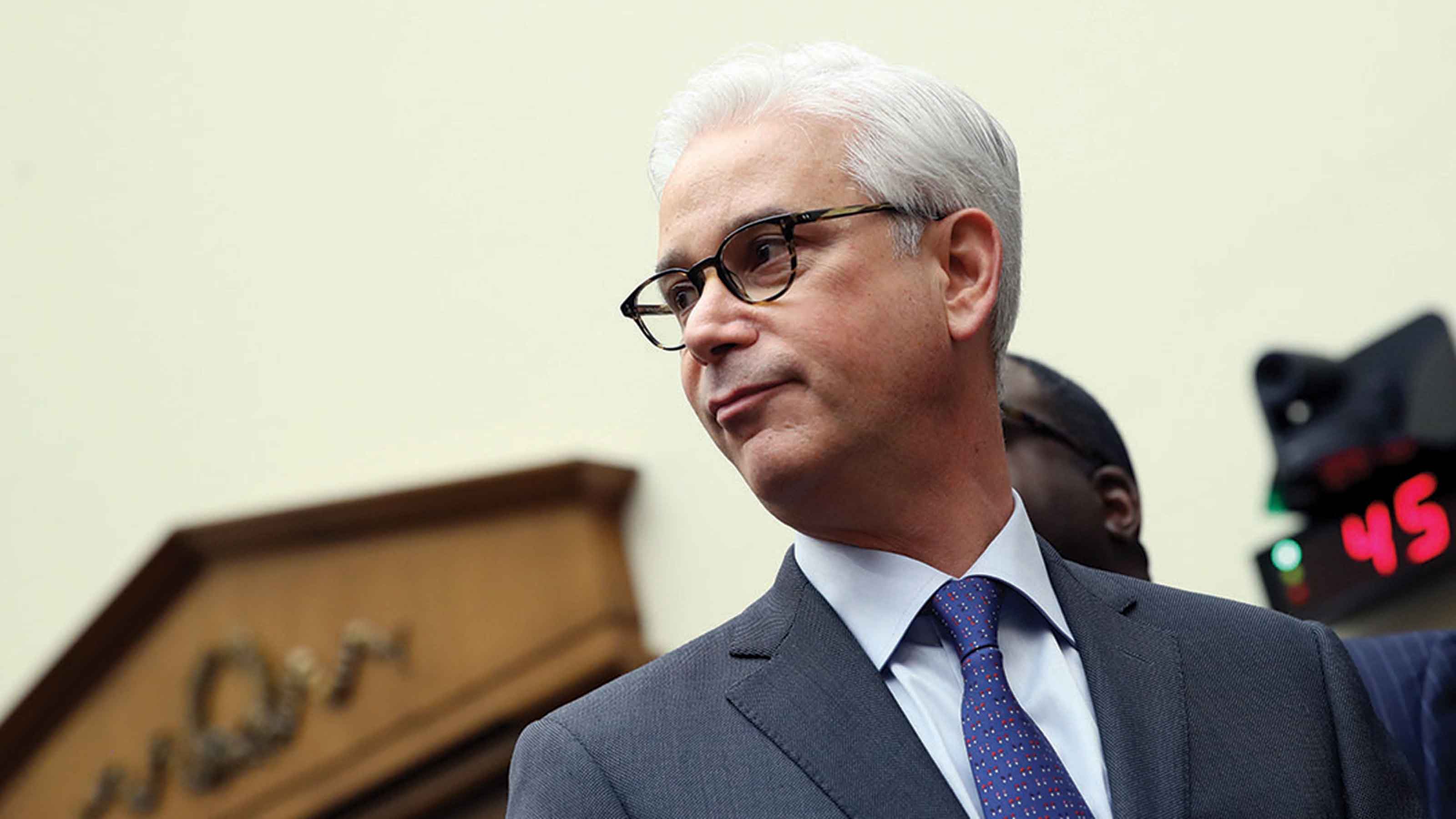The Art of Being Too Big to Fail
Try defining what makes a financial firm "too big to fail" and you come up with a lot of explanations that sound like the classic definition of obscenity.
Profit and prosper with the best of Kiplinger's advice on investing, taxes, retirement, personal finance and much more. Delivered daily. Enter your email in the box and click Sign Me Up.
You are now subscribed
Your newsletter sign-up was successful
Want to add more newsletters?

Delivered daily
Kiplinger Today
Profit and prosper with the best of Kiplinger's advice on investing, taxes, retirement, personal finance and much more delivered daily. Smart money moves start here.

Sent five days a week
Kiplinger A Step Ahead
Get practical help to make better financial decisions in your everyday life, from spending to savings on top deals.

Delivered daily
Kiplinger Closing Bell
Get today's biggest financial and investing headlines delivered to your inbox every day the U.S. stock market is open.

Sent twice a week
Kiplinger Adviser Intel
Financial pros across the country share best practices and fresh tactics to preserve and grow your wealth.

Delivered weekly
Kiplinger Tax Tips
Trim your federal and state tax bills with practical tax-planning and tax-cutting strategies.

Sent twice a week
Kiplinger Retirement Tips
Your twice-a-week guide to planning and enjoying a financially secure and richly rewarding retirement

Sent bimonthly.
Kiplinger Adviser Angle
Insights for advisers, wealth managers and other financial professionals.

Sent twice a week
Kiplinger Investing Weekly
Your twice-a-week roundup of promising stocks, funds, companies and industries you should consider, ones you should avoid, and why.

Sent weekly for six weeks
Kiplinger Invest for Retirement
Your step-by-step six-part series on how to invest for retirement, from devising a successful strategy to exactly which investments to choose.
Try defining what makes a financial firm "too big to fail" and you come up with a lot of explanations that sound like the classic definition of obscenity. With both, you know it when you see it. The inability to establish objective criteria is proving a problem for lawmakers working on an overhaul of financial regulations. Since this current financial crisis hit two years ago, scores of firms have been allowed to fail, while the federal government has swooped in to save others with capital infusions and shotgun mergers. It hasn't always made the right decision: Letting Lehman Brothers go under brought credit markets to a screeching halt last September. So now lawmakers are trying to replace the "know it when you see it" creed with a more precise definition.
The problem is that it's almost impossible to do that without creating a permanent safety net for some companies and not others. Think back to Fannie Mae and Freddie Mac, the housing giants that swallowed up shaky mortgage backed securities with impunity. Looking ahead regulators face a tricky balance between finding a way to unwind big failing firms without a risk to the system and without stepping into the moral hazard of giving big firms a guarantee they will be bailed out. Already Rep. Barney Frank, D-Mass., a key figure in the financial regulatory debate, has argued against creating a hard and fast list of companies.
As Washington tries to figure out how to fence off certain major firms with the potential to drag down the whole system, attention is focusing on an idea from James Thomson at the Federal Reserve Bank of Cleveland, who asserts that lawmakers should look at a range of factors that include not only a firm's size, but also its importance in a particular marketplace and its relevance to the overall financial system -- the thinking being that the failure of a $30 billion index fund or a bank in North Dakota won't do as much damage as the collapse of a major New York lender with complex swap contracts.
From just $107.88 $24.99 for Kiplinger Personal Finance
Become a smarter, better informed investor. Subscribe from just $107.88 $24.99, plus get up to 4 Special Issues

Sign up for Kiplinger’s Free Newsletters
Profit and prosper with the best of expert advice on investing, taxes, retirement, personal finance and more - straight to your e-mail.
Profit and prosper with the best of expert advice - straight to your e-mail.
In Thomson's examples, a firm that holds at least 10% of the nation's banking assets or that clears more than 25% of trades in a key market could both fall under this purview. So could a firm whose failure leads to a seizing up of capital accounting for 30% of the assets in the financial system. But ths complex calculus still wades into murky territory and in the end leaves a lot of discretion in the hands of the Treasury or the Federal Reserve.
However they are defined, these systemically risky firms seem certain to receive an additional layor of regulation from Washington. A safety net would come with a steep price: increased capital requirements, additional fees, limits on certain financial activities and scrutiny of compensation practices. The Federal Reserve, or a council of regulators led by the central bank, will also most likely get more oversight on these big players -- though not before some bruising turf battles and debates over whether the central bank is compromising its independence.
The implicit guarantees do have one advantage for large financial firms deemed too big to fail. they will tilt the playing field in their favor by making it easier to raise capital down the road. Still many companies may decide that the gains aren't worth the cost and instead will find ways to escape notice.
Profit and prosper with the best of Kiplinger's advice on investing, taxes, retirement, personal finance and much more. Delivered daily. Enter your email in the box and click Sign Me Up.
-
 Dow Adds 1,206 Points to Top 50,000: Stock Market Today
Dow Adds 1,206 Points to Top 50,000: Stock Market TodayThe S&P 500 and Nasdaq also had strong finishes to a volatile week, with beaten-down tech stocks outperforming.
-
 Ask the Tax Editor: Federal Income Tax Deductions
Ask the Tax Editor: Federal Income Tax DeductionsAsk the Editor In this week's Ask the Editor Q&A, Joy Taylor answers questions on federal income tax deductions
-
 States With No-Fault Car Insurance Laws (and How No-Fault Car Insurance Works)
States With No-Fault Car Insurance Laws (and How No-Fault Car Insurance Works)A breakdown of the confusing rules around no-fault car insurance in every state where it exists.
-
 Airbnb Host Tells What It's Like
Airbnb Host Tells What It's LikeBusiness Costs & Regulation This Denver pharmacist began booking her ski condo a few months after the pandemic hit.
-
 Tough Times for a Family Business
Tough Times for a Family BusinessBusiness Costs & Regulation His dry-cleaning operation was rocked by the pandemic, but he is staying optimistic.
-
 IRS Gives Truckers a Tax Break in Response to the Colonial Pipeline Shutdown
IRS Gives Truckers a Tax Break in Response to the Colonial Pipeline ShutdownTax Breaks The tax penalty for using dyed diesel fuel for highway use is temporarily suspended.
-
 Reliving a Harlem Renaissance
Reliving a Harlem RenaissanceBusiness Costs & Regulation After a tough winter, two sisters look forward to reviving their restaurant’s business.
-
 Add a VPN to Surf the Internet Safely
Add a VPN to Surf the Internet SafelyTechnology To help you fight identity theft, consider adding a VPN.
-
 Stephanie Creary: Making the Case for Diversity on Corporate Boards
Stephanie Creary: Making the Case for Diversity on Corporate BoardsBusiness Costs & Regulation Adding underrepresented voices can improve a company’s bottom line.
-
 Kiplinger's 2020 Election Forecast
Kiplinger's 2020 Election ForecastPolitics For nearly a century, The Kiplinger Letter has forecasted the outcome of presidential elections to keep readers informed of what's coming and what it means for them. Here's our call for 2020.
-
 How We Lose When We Overlook Black Talent
How We Lose When We Overlook Black TalentBusiness Executives Comments from Wells Fargo CEO Charles Scharf (pictured) reflect a culture that tramples on clients’ trust and limits opportunities for people of color.